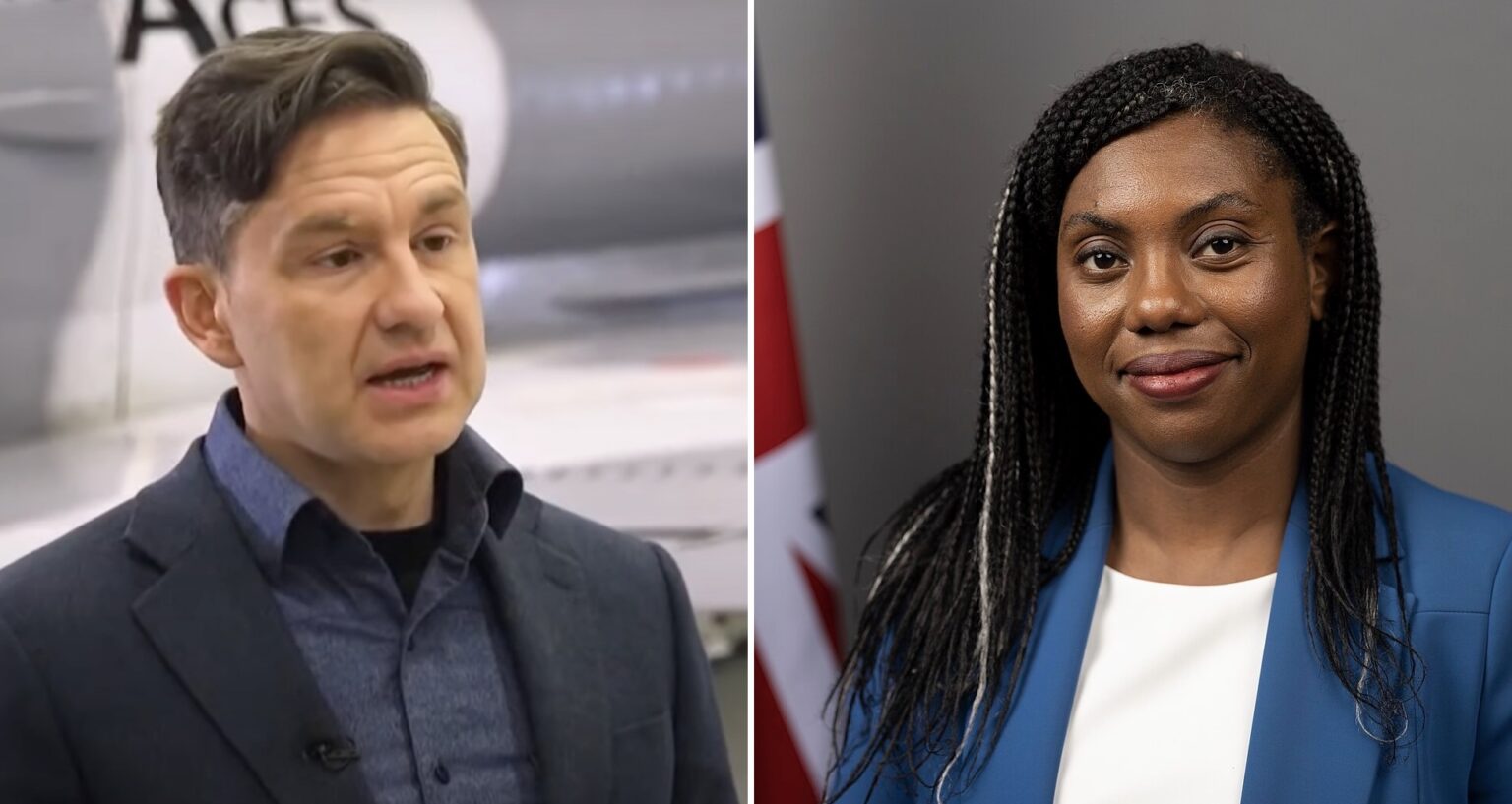Conservative leader and presumptive prime minister-in-waiting Pierre Poilievre hasn’t articulated specific policies so much as rhyming slogans like “axe the tax” and “spike the hike.” With the governing Liberal party in disarray and Conservatives leading the polls by almost 25 percent, Canadians need to know how Poilievre would lead rather than the opposition attack dog role he has played for many years.
Poilievre’s proposals on climate are particularly opaque. Cancelling federal carbon pricing has been his primary campaign plank, yet he has said little on what the Conservatives would do instead to combat the accelerating climate emergency.
Important clues were on display when he recently met with the head of the UK Conservative Party Kemi Badenoch, who DeSmog has revealed to be backed by hardcore climate deniers.
The admiration in their meeting was mutual. In a post on X, Badenoch called Poilievre “an impressive and thoughtful political figure I’m pleased to have as a new friend and ally!” Poilievre responded on Facebook that Badenoch “stands for common sense, freedom and family. She has the courage to denounce and defeat toxic wokeism and restore ancient British liberties to the United Kingdom.”
Badenoch, a self-described “net zero skeptic,” became leader of the Conservative party after their defeat in the UK general election last November. Like Poilievre, she has regularly voted in parliament against measures that would limit climate change. In 2022, she voted in favour of lifting the ban on fracking in the UK.
DeSmog documented that Badenoch received a £10,000 donation to her leadership campaign from Neil Record, the chair of Net Zero Watch (NZW). This is a campaign group funded by the Global Warming Policy Foundation, described in a DeSmog profile as “the UK’s most prominent climate science denial group,” founded by former chancellor Nigel Lawson with the purpose of combating what it describes as “extremely damaging and harmful policies” designed to mitigate climate change.
Parroting the positions of her financial backers, Badenoch has said that the UK’s 2050 net zero target is “arbitrary,” “set up with no thought” and would “bankrupt” the country. The net zero target was in fact based on a 277 page report from the Climate Change Committee – an independent body of experts created by the Climate Change Act of 2008 to advise the UK parliament and local governments on emission targets.
The UK’s official budgetary watchdog warned in 2021 that the costs to the economy of doing nothing to mitigate the climate emergency were “much larger” than meeting net zero targets, warning their business-as-usual forecast “shows debt spiraling up to around 290 percent of GDP thanks to the cost of adapting to an ever-hotter climate and of more frequent and more costly economic shocks.” In contrast, acting early to cut emissions toward net zero in 2050 would require public spending of only 0.4 percent of GDP per year.
‘Economic Nuclear Winter’
Poilievre also has a consistent record of voting against environmental measures almost 400 times during his two decades as a member of parliament. In the same way that Badenoch falsely claimed UK policies to address the climate crisis would bankrupt the economy, Poilievre has based much of his messaging on misleading statements about affordability and the Canadian carbon tax.
The Canadian Conservative leader hyperbolically claimed that the federal carbon pricing system on the books since 2019 will cause “mass hunger and malnutrition,” that “inflation would run rampant, and people would not be able to leave their homes or drive anywhere.” In this shark-jumping speech to the Conservative caucus in September 2024, he went on to describe a dystopian future of “economic nuclear winter” caused by the carbon tax.
These statements are nowhere near the truth. A recent study by University of Calgary economists found the carbon tax had “minimal impact” on inflation or Canadian food prices, pushing up consumer costs only 0.5 percent in the last five years. Over 80 percent of Canadians – particularly low-income households – receive more in rebates than they pay in carbon costs.
What is already leading to a dystopian future is rampant carbon emissions, which have already cost the Canadian economy $25 billion in the last 10 years due to increased droughts, forest fires and damage to infrastructure. Those impacts on economic growth are cumulative and expected to accelerate to $35 billion by 2030 and up $100 billion by 2055.
The longer governments delay action on the accelerating climate crisis, the more expensive the impacts will be. A recent expert report showed Canadian GDP could fall by a staggering 12 percent by the end of the century compared to a stable climate scenario. The impacts on individual households are even more severe with incomes diminishing up to 18 percent.
The most recent example of the costs of climate inaction is the devastating wildfires now ravaging southern California, which have already been named among the most expensive natural disasters in U.S. history. The clear connections between increased wildfires and carbon emissions are documented by peer-reviewed research. 2023 and 2024 were the costliest on record for climate related disasters, adding up to over $1 trillion in damages.
Poilievre has been clear on the need for fiscal prudence. So why has he been so silent on what is becoming the dominating economic issue of the century? Like Badenoch in the UK, Poilievre has focused on childish slogans rather than articulating grown-up positions to meet the climate emergency.
You can tell a lot about a person’s character by the company they keep. While Poilievre seems intentionally cagey about what – if any – climate policies he intends to enact, Canadians should take note of Badenoch’s clear brush off of our climate crisis.
Subscribe to our newsletter
Stay up to date with DeSmog news and alerts







